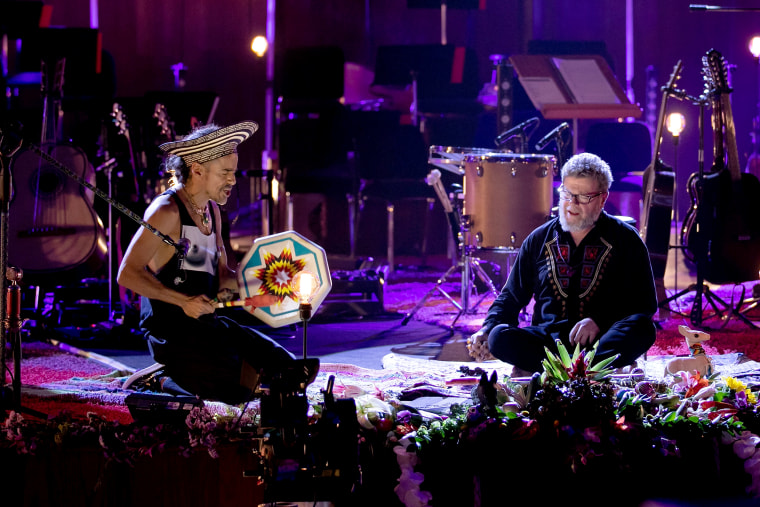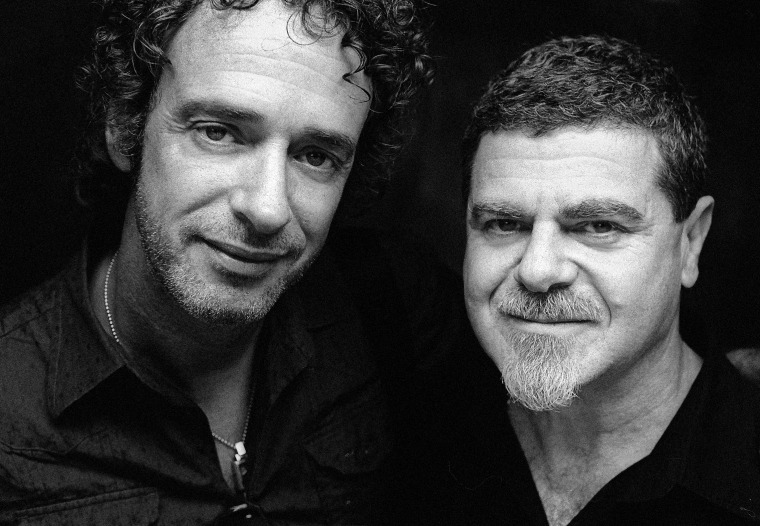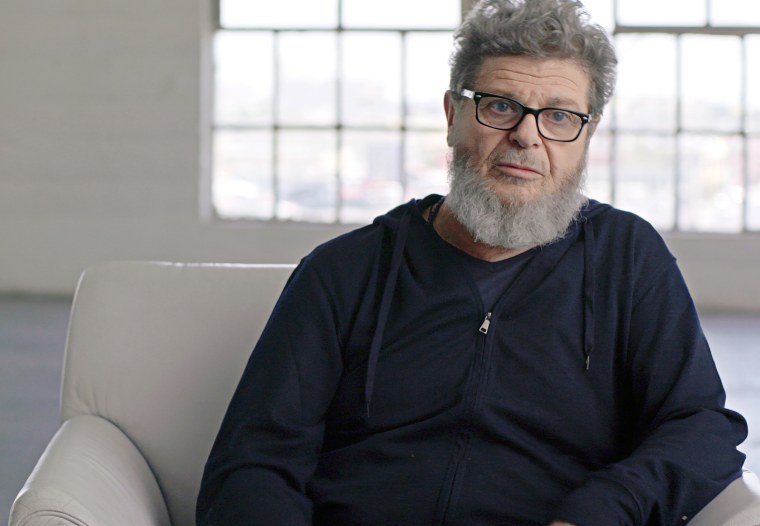There are times when a movie's haunting score is as memorable as its characters. Gustavo Santaolalla has won not one but two Oscars for best original score for his work on the films "Brokeback Mountain" and "Babel." More recently, he composed the award-winning soundtrack of "The Last of Us," one of the highest-selling video games in recent years, and the original music for the documentary "Freak Power: The Ballot or the Bomb," which follows writer Hunter S. Thompson's journey to building his own political movement.
But Santaolalla, a Grammy-winning Argentine musician, composer, record producer and Latin rock pioneer, is still increasingly busy.
The documentary series "Break It All: The History of Rock in Latin America," which he co-executive produced, dropped Wednesday on Netflix — and his latest original score is out Friday, with the release of Amazon's new series "The Legend of El Cid."
Just this week, the Criterion Collection released a remastered version of Alejandro Iñárritu's highly acclaimed film "Amores Perros," which includes an interview with Santaolalla, who composed the iconic film's score 20 years ago.

If that wasn't enough, Santaolalla landed a Grammy nomination this year for best Latin rock or alternative album for the work he and his fellow Bajofondo bandmates did on their newest album, "Aura," based on music improvisations that were arranged into songs.
"It was a beautiful surprise and a triumph for music," Santaolalla said in Spanish about the Grammy nomination. "It validates our vision, which can at times be a commercially risky one. But nothing ever comes without taking risks. Danger, innocence, all those things, are part of a rocker's spirit."
Bajofondo, a unique band of eight musicians of different ages across many cities, merges rock, electronic music, tango, milonga and candombe in a contemporary way — as they pay tribute to music styles from regions in Argentina and Uruguay that are connected to one another by the La Plata River.
"We grew up with all these sounds, so in a way we're working with slices of memories from our people," Santaolalla said, adding that while the band's members have backgrounds in different music genres, such as hip-hop and classical, "we all have rock in common, which has helped us develop our own musical language."
Latin America's upheavals mark its rocker DNA
Santaolalla's rock 'n' roll roots go back to the late 1960s, when he co-founded Arco Iris, a rock band that pioneered the fusion of rock and Latin American folk music. The band was part of a growing movement of Latin rock in Argentina that later became known as "rock nacional" — a huge point of pride for people in Argentina.
"If you ask anyone what is the music of Argentina, they will say tango, folk and rock nacional. Rock became part of our music, but it was detached from Anglo rock. We took this music and reformulated it as our own," Santaolalla said. "We knew that rock was powerful, and we realized that the best way to unlock that power was by singing it in our language and playing it in our language.
"Our rock 'n' roll connected with our human need to feel free," he added.
Rock artists from Argentina, Mexico, Chile, Uruguay and Colombia have been at the forefront of the Latin rock evolution for the past several decades. "Break It All: The History of Rock in Latin America" covers five of those decades, starting with Ritchie Valens, the California-born Mexican American musician who turned the traditional Mexican song "La Bamba" into an American rock staple in the 1950s.
But it's almost impossible to tell the history of Latin rock without delving into the sociopolitical realities of those countries at a time when "Che Guevara and the Beatles coexisted," Santaolalla said.
The documentary's title, "Break It All," refers to the 1966 hit song by the Uruguayan group Los Shakers, which was heavily influenced by The Beatles.
The series fast-forwards through the decades while juxtaposing Latin rock music with images of dictatorships, coups, uprisings and crises across Latin America — including the military dictatorship in Argentina, the dictatorship of Augusto Pinochet in Chile and the Tlatelolco Massacre in Mexico.
"The context behind our music is very important, and this is why the future of rock resides in us, because in a way, Anglo rock lost sight of that rock 'n' roll essence that makes it a platform to criticize structures of power. It serves as a vehicle to denounce abuses of power and injustices," Santaolalla said. "Rock can move masses, something that discomforts those in power."
In rock, 'cycles of history that repeat themselves'
At 69, Santaolalla has built an impressive repertoire, from recording numerous solo albums and founding bands to composing countless original scores for TV and film. He has also worked as a record producer, and he helped develop some of the most important Latin rock bands, such as Maldita Vecindad, Fobia, Molotov, Café Tacvba and Los Prisioneros, as well as solo artists such as León Gieco, Julieta Venegas, Juanes and many others.
He continues to be influenced by current events and "the accumulation of history," he said. "Everything that has happened before marks us somehow, but the most interesting thing is that things come back as if they were cycles of history that repeat themselves."

Just last year, the Chilean rock artist Mon Laferte took the stage at the Viña del Mar International Song Festival and told attendees that she was afraid that the Carabiniers (uniformed national police) in Chile will knock on her door at any moment after she got threats from them, Santaolalla said, adding that the Carabiniers helped facilitate the coup that enabled Pinochet's rise in the 70s.
At the festival, the audience responded with supportive chants: "No estás sola," Spanish for "you're not alone." Laferte, the most listened-to Chilean artist on Spotify worldwide, has been a longtime activist defending women's and LGBTQ rights.
"That didn't happen 20 years ago. It happened last year," Santaolalla said. He said that when he was working on "Freak Power: The Ballot or the Bomb," he found archival images of indiscriminate police violence against counterculture and anti-Vietnam War protesters, reporters, photographers and bystanders during the 1968 Democratic National Convention that mirrored some of the images coming out of the protests in Portland, Oregon, this year.
"Rock is in quarantine, and the vaccine is Latin American and has a woman's perfume," Santaolalla said, referring to female rockers. "I dare to say that a large part of the future of rock resides in Latin America and in women."
Follow NBC Latino on Facebook, Twitter and Instagram.

